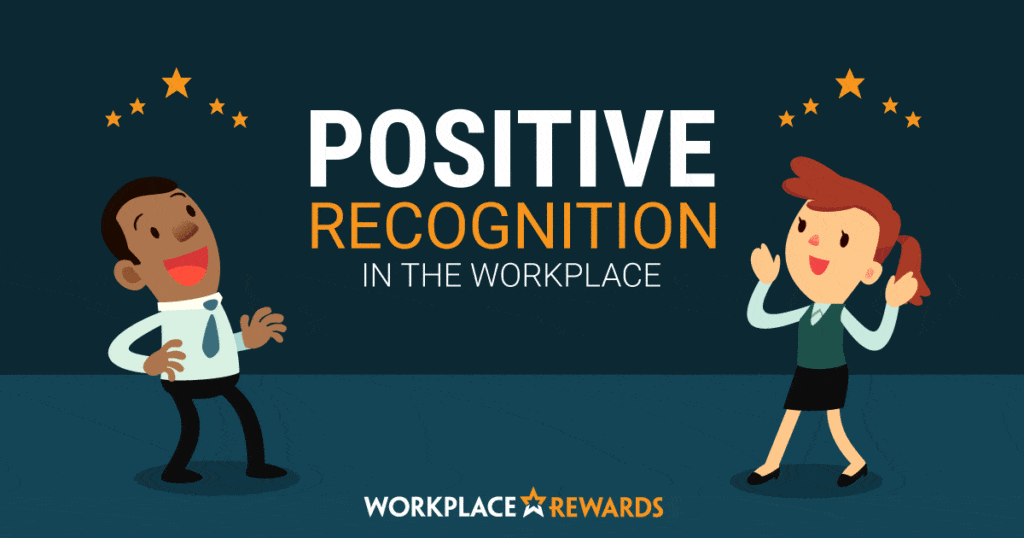What is the best way to improve employee productivity and business profitability?
This is a question posed by businesses all around the world. For most, the answer is deceptively simple: positive recognition. Positive recognition can be a driving force behind employee motivation when used correctly and sincerely. Almost no one can resist being told that the effort they put forth is appreciated.
In many ways, business has moved far beyond the days in which a paycheck was the primary symbol of acknowledgment and appreciation for employees. An increasingly competitive workplace means that not only do companies compete for customers, they also compete for employees. No matter how great your benefits package is, if your employees don’t feel appreciated, they may move on to a position with another employer.
Recognizing and Rewarding Positive Behaviors
Motivating your employees to do their best work can be a delicate dance, particularly when it comes to recognizing their efforts. Too much and you come across as insincere. Too little and you will be viewed as harsh. Striking the right balance takes intention.
Positive reinforcement involves recognizing and rewarding desired behaviors in order to encourage their continuation. This can include praise, incentives, appreciation, or a combination of any of these actions. Recognition and reward of desired behaviors can impact workplace culture in many ways:
- Improved morale
- Increased sense of employee self-worth and confidence
- Increased good behavior
- Greater employee productivity
- Improved connection between team members
- Stronger interpersonal relationships
- Increased commitment to company
- Improved employee motivation
Sounds great, right? What business wouldn’t want that? Fortunately, you can set your employees on a path to greater motivation and productivity with behavior-specific praise.
Behavior-Specific Praise
Behavior-specific praise is a popular positive reinforcement technique in the educational sphere. Encouragement in this format has been shown to increase a student’s social and academic performance, particularly for students with challenges. In this way, positive reinforcement can dramatically change school climate and improve the educational experience for everyone. In the workplace, behavior-specific praise has the potential to create better personal relationships and positively affect employee motivation.
But how does behavior-specific praise work?
Put simply, behavior-specific praise combines an observable behavior with a statement about how that action affects the praise-giver. In the school setting, a teacher may say, “Little Johnny, when you are in your seat and ready to get started when the bell rings, I am pleased to see you so prepared.” While Little Johnny might be the rascal at the center of many school-related jokes, such praise from a teacher can make a significant difference.
It can be the same with your employees. When you use behavior-specific praise, you let your employees know what you value in the workplace and how they display those values. It can be a huge boost to workplace morale.
How to Give Positive Praise and Recognition in the Workplace
Positive reinforcement in the workplace is an effective way to create a positive workplace culture and it requires little to no expense. It increases your employees’ self-worth and adds value and ownership to work performance. These qualities can increase productivity. Complimenting or praising an employee in this way can also alleviate any self-doubt on work performance. It is important, however, to do it right. Follow these guidelines:
- Number one rule of praise: Give praise immediately following the action or it loses meaning.
- Honesty is the best policy. When the praise is sincere and realistic it means more to the recipient.
- Timing is everything. Reinforce the positive results immediately following the action.
- Personalize the praise. Each employee responds differently to recognition. Know your employees and tailor your recognition so it produces the greatest impact for each individual.
- Random, unscheduled recognition motivates more than scheduled recognition. Frequent and random is better than regular, scheduled recognition.
As a management style, behavior-specific praise can set a positive tone and improve your workplace culture. These positive interactions create relationships between management and employees as well as among employees themselves. Additionally, positive reinforcement can increase employee engagement and reduce employee turnover – two qualities that impact your company’s productivity and profitability.
Want to create a positive workplace culture? Workplace Rewards can help! Contact us for more information!
